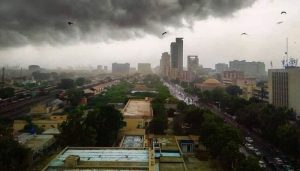[ad_1]
ISLAMABAD: The federal government announced its decision to ban a political party – Pakistan Tehreek-e-Insaf – in a move that was criticized by lawyers, journalists, and politicians terming it ridiculous and desperate.
This is not the first time in Pakistan just more than 75 years of age that a political party has struggled against the ban. Pakistan has a long history of proscribing political parties deemed a threat to the state and it is now warning to bar one of the largest political parties, PTI.
Communist Party of Pakistan
In July 1954, the Communist Party of Pakistan was banned on the charges of attempting to overthrow the government of then-prime minister Liaquat Ali Khan in 1951 allegedly backed by the former Soviet Union.
The famous unsuccessful plot to overthrow the government, led by Major-General Akbar Khan, is known as the Rawalpindi conspiracy case. General Akbar, his wife, poet Faiz Ahmed Faiz, dozens of military officers, and the Communist Party’s general secretary, Syed Sajjad Zaheer were arrested, tried, and put behind bars.
Awami League
President General Yahya Khan banned Sheikh Mujeebur Rehman’s Awami League on March 26, 1971, over his announcement of a non-cooperation movement.
President General Yahya Khan termed Sheikh’s non-cooperation movement as an act of treason and said that they had insulted Pakistan’s flag and defiled the photograph of the Father of the Nation. “They have tried to run a parallel government. They have created turmoil, terror, and insecurity.”
National Awami Party
The National Awami Party (NAP) faction led by Wali Khan was banned twice in eight years, the first time under Yahya Khan’s government in 1971 and the second time in 1975 by Zulfiqar Ali Bhutto’s government.
The National Awami Party was formed after the 1967 split in the original NAP between Maulana Bhashani and Abdul Wali Khan. The Wali Khan faction was later named National Awami Party after the independence of Bangladesh (former East Pakistan).
It was then resurfaced under the name National Democratic Party, from which it was renamed as Awami National Party.
Jeay Sindh Qaumi Mahaz-Arisar
In May 2020, Imran Khan-led government outlawed the Jeay Sindh Qaumi Mahaz-Arisar (JSQM-A), a party based in Sindh, along with two allegedly militant groups — the Sindhudesh Liberation Army and the Sindhudesh Revolutionary Army — citing “reasonable grounds” that the organizations were involved in terrorism.
The JSQM-A was well-known for criticizing China’s Belt and Road Initiative.
Tehreek-e-Labbaik Pakistan (TLP)
The Punjab government banned Tehreek-e-Labbaik Pakistan (TLP) on April 15, 2021, after violent protests erupted that claimed the lives of a few policemen.
The provincial government had requested the ban and the summary, after being approved by the federal cabinet, had resulted in the prohibition under the Anti-Terrorism Act 1997.
TLP filed a review petition on April 29, 2021, for the removal of the ban. It should, however, be noted that despite the ban, the party was allowed to continue to take part in elections, as it was not delisted by the ECP.
The banned outfit again held its protests in October 2021, following which the government agreed to lift the ban on the party on November 7 of the same year and released its detained chief Saad Rizvi, on November 18.
[ad_2]
Source link






